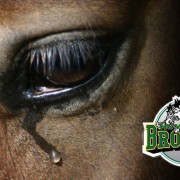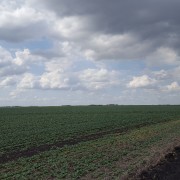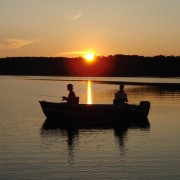Knowing Your Costs – Part 3: “The Present vs The Future”
As a proud member of the Rider Nation, and loyal fan of the entire CFL (despite the goofy new rules for
2015,) I witnessed something happen on the weekend that blew up social media and has fans of the
Green & White frothing.
The struggling winless Riders have been devastated by injury and lack-luster performances on field,
especially defensively. The order of the game plan each week seems to be “who can we plug where?”
One of the criticisms from fans is that there has been inadequate planning on behalf of management to
bring in the right new talent to provide appropriate solutions at time of crisis (like injury.)
While the business of football is a mystery to me, the business of business is not. Like a football team,
your business will face crises and you’ll need to adjust quickly. It doesn’t have to be personnel related
(like a football team;) it could be asset related (like equipment catastrophe) or market related (like a
major price decline) or anything. The knee-jerk reactions that are commonplace during times of crisis
rarely bode well for outcomes.
In the case of my favorite football team, the knee jerk reactions have been to sign different players to
the roster regularly. This is meant to fill the gaps left by injury, unsatisfactory performance, etc. This
knee-jerk reaction creates an air of constant uncertainty among the remaining players, and rarely brings
instant results because new players need time to learn the system, and gel with their teammates so as
to function as a unit when on the field. Wouldn’t it be better to have developed some younger players
and keep them on a practice roster? Players who would have learned the system since training camp,
and who are just itching to get on the field and show their stuff?
Similar to your business when you face crises, you could follow the lead of this football team and simply
run to the marketplace to buy another combine, rent more land, hire more people, apply more spray,
etc. The knee-jerk reaction would feel good in the short term because of the band-aid effect, but what
about the future? How has the knee-jerk decision affected your future profitability? Will the lease or
finance cost of that combine be affordable for the next 2-5 years? Will the extra land grow anything, or
will it be flooded out or ravaged with disease? Will your new hire fit in with your existing team and
culture? Will that extra spray increase or decrease your profit? Wouldn’t it be better to have given these
potential crises some consideration before the season started with some planning? With planning, you
would be prepared and then make a timely and informed decision. No more knee-jerk reactions.
The biggest issue with my favorite football team came to light during the last game this past Sunday. The
head coach pulled a young quarterback from the game after he threw an interception. The young QB,
who is 23 years old and fresh out of college, started the season as 3rd in line yet found himself in the #1
slot for the last number of games because of injury. By all accounts, this young man has the skills to be
the future leader of this team…in several years, not now. He needs time to learn, to enhance his skills
and his knowledge. The best way to enhance those skills is with real life experience. On Sunday, the
head coach regressed that young man’s growth by killing his confidence when he got benched for one
mistake. The coach made a knee-jerk decision that can, and likely will, have a detrimental effect on the
future of the team.
While the future of this football team weighs heavy on the fans enthusiasm right now, your business
doesn’t have to be this way. Whether it be a crisis in personnel, equipment, weather, or markets, the
preparation and planning you put in ahead of time will save you time, anxiety, and money.
How does this relate to knowing your costs? It comes from planning. Knowing your critical crisis cost
points from investing time and effort in your management will clearly indicate where you have
sensitivities and where you have breathing room. The sensitive areas, where your return on investment
is tight, require more strategy analysis to better prepare for crisis.
Critical Crisis Cost Points
Personnel
o Key person quits mid-season (do you have a successor on the team today?)
o Injury, serious or minor (do you have a documented safety plan, insurance coverage?)
Equipment
o Does your current equipment cost per acre have room for an increase should there be
an equipment crisis?
o Is your current equipment line deficient or excessive based on your productivity,
efficiency, and cost expectations?
Weather
o Are you prepared for hail or frost, drought or flood? (i.e. do you have sufficient working
capital to handle the loss of gross margin?)
Markets
o Do you know your Unit Cost of Production so you can hedge for a profit?
Direct Questions
What have you done to prepare for crisis on your farm? Will you be making a prepared and informed
decision or a knee-jerk reaction?
What are you doing to understand your costs on your critical cost points to accelerate your ability to
make informed decisions during times of crisis?
From the Home Quarter
The planning that goes into putting together a successful football season resembles the planning it takes
to put together a successful growing season on your farm. You put together the best game plan you can
based on the assets at your disposal, tangible or intangible. You prepare for quandary by building depth
into your game plan for your critical crisis cost points. Sometimes you best plans aren’t enough;
sometimes the dilemma is greater than you could predict or the results are more damaging than you
could imagine. No matter how you slice it, your best bet is planning and being prepared by drawing the
distinction between risking your future on a quick decision in the present, or taking the charted path
keeping the long term success of your business always in mind.
The head coach of the Riders got fired before I could finish writing this article. I expect it was partly
because he refused to take any accountability for the team’s struggles. He routinely made decisions in
the present with a lack of regard for his, or his team’s, future. He arrogantly stated in interviews that
he’s a great coach and will find work if he’s let go. His unwillingness to look within himself as the leader
ultimately cost him his job. As the leader of your farm, please don’t get caught in that same syndrome.
Your future depends on it.












Leave a Reply
Want to join the discussion?Feel free to contribute!